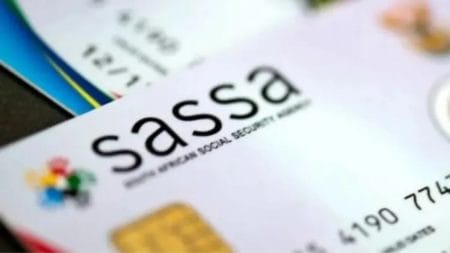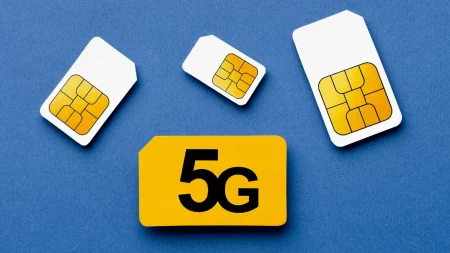Applying for a SASSA (South African Social Security Agency) grant can be a vital step for individuals and families who need financial assistance. These grants provide support to millions of South Africans, including the elderly, disabled, and vulnerable children. However, not everyone who applies for a SASSA grant is approved. If your application was declined, it can be frustrating and confusing.
In this article, we will explore ten possible reasons why your SASSA grant application might have been rejected and what you can do to improve your chances of success in the future.
1. Income Exceeds Threshold Limits
One of the most common reasons for a SASSA grant application to be declined is that the applicant’s income exceeds the eligibility threshold. For each grant, there are specific income limits, and if your income or household income is higher than the allowed amount, your application will be denied. SASSA checks the financial status of applicants to ensure that only those in genuine need receive assistance.
What You Can Do: If your financial circumstances change, you can reapply, but ensure that your income falls within the stipulated limits for the specific grant you are applying for.
2. Incorrect or Missing Documentation
SASSA requires accurate and complete documentation to process any grant application. Missing, incorrect, or expired documents are common reasons for denial. Whether it’s your ID, proof of income, or medical reports (for disability grants), any discrepancies or omissions can lead to your application being rejected.
What You Can Do: Double-check your documentation before submitting it. Make sure all the necessary forms are filled out correctly, and submit certified copies of required documents. If you realize that you’ve made an error, correct it and reapply.
3. Failure to Meet Age Requirements
Certain SASSA grants, such as the Old Age Pension, have strict age requirements. If you’re applying for a grant but do not meet the specific age criterion, your application will be automatically declined. For example, the Old Age Pension is only available to individuals who are 60 years or older.
What You Can Do: Ensure that you meet the age criteria for the specific grant you are applying for. If you’re too young, you will have to wait until you qualify based on age.
4. Not Being a South African Citizen or Permanent Resident
SASSA grants are only available to South African citizens or permanent residents. If you are not a South African citizen or have not yet obtained permanent residency status, your application will be declined. This requirement is strictly enforced, as these grants are intended for South African residents in need of social assistance.
What You Can Do: If you’re a foreign national living in South Africa, consider applying for permanent residency if you meet the criteria. Once granted permanent residency, you can reapply for the SASSA grant.
Related: Department of Social Development Reports Only 2% of 10 Million SASSA SRD Appeals Approved
5. Your Dependent is Already Receiving Support
If you’re applying for a grant on behalf of a child or dependent, and that person is already receiving financial assistance from another source, your application may be declined. For instance, if a child is already receiving maintenance or another form of financial support, SASSA may deny your application for a child support grant.
What You Can Do: Make sure to disclose all forms of financial support being received by the dependent. If the other support ceases or changes, you can update your application and reapply for a grant.
6. Receiving Other Government Assistance
Applicants who are already benefiting from other forms of government assistance may not be eligible for additional SASSA grants. For example, if you’re receiving unemployment insurance (UIF), you may not qualify for certain SASSA grants. The government aims to prevent duplication of benefits.
What You Can Do: If your current government assistance ends, inform SASSA and reapply for the grant you need.
7. Not Meeting Medical Criteria for Disability Grants
Disability grants require thorough medical assessments. If you are applying for a disability grant and the medical examination does not confirm that you meet the criteria for permanent or temporary disability, your application will be declined. SASSA needs to verify that the disability is significant enough to prevent you from earning a living.
What You Can Do: If your health condition worsens or changes, you can get a new medical report from a government-approved doctor and reapply for the disability grant.
8. Incomplete Financial Means Test
SASSA performs a means test to determine if an applicant is eligible for a grant based on their financial situation. If you fail to provide all the necessary financial information or if the information you provide doesn’t meet the required standards, your application may be denied.
What You Can Do: Make sure you submit all required financial documents, including proof of income and assets. If the means test shows that you now qualify, you can reapply.
9. Failure to Meet Residency or Living Conditions Requirements
SASSA may require proof that you live in South Africa for a certain period or reside in particular conditions to qualify for a grant. If you cannot provide sufficient proof of residence or your living conditions don’t match the grant’s requirements, your application may be declined.
What You Can Do: Ensure that you provide adequate proof of residency, such as utility bills or lease agreements, and that your living conditions meet the grant’s specific requirements.
10. Fraudulent or False Information
Providing false information or attempting to defraud the system is a serious offense. If SASSA finds that you submitted fraudulent information during your application, not only will your application be declined, but you could also face legal consequences.
What You Can Do: Always provide truthful and accurate information. If any of your details change after submitting the application, inform SASSA immediately. Honesty is key to avoiding penalties and ensuring that your application is processed fairly.
What to Do if Your SASSA Grant Application Was Declined
If your SASSA grant application was declined, you have the right to appeal the decision. Here’s how you can go about it:
- Request an Appeal: Visit your local SASSA office or contact them via phone or email to request an appeal.
- Gather Additional Documents: Make sure you have all the necessary documents that could strengthen your case, such as medical reports, proof of income, or other relevant papers.
- Submit Your Appeal: Once you’ve gathered the required information, submit your appeal within 90 days of receiving your rejection notice.
- Follow Up: Keep in regular contact with SASSA to follow up on the status of your appeal.
Read More: 7 Things to Do if Your SASSA SRD Grant Payments Are Delayed
FAQs: Common Questions About SASSA Grant Application Declines
Q: Can I apply for a SASSA grant again if my first application was declined?
A: Yes, you can reapply if your application was declined, provided you address the reasons for the denial. Ensure all required documents are correct, and you meet the eligibility criteria for the specific grant you are applying for.
Q: How long does it take to appeal a declined SASSA application?
A: After submitting an appeal, it can take anywhere from 30 to 90 days for SASSA to process the appeal and provide a decision. The timeline can vary depending on the volume of applications and appeals being handled at the time.
Q: Can my SASSA grant be declined due to my employment status?
A: Yes, if you are employed and your income exceeds the threshold for the grant you’re applying for, your application will likely be declined. For example, an applicant for the Child Support Grant must have a household income below a certain amount to qualify. Always check the income requirements before applying.
Q: What happens if I provide false information on my SASSA application?
A: Providing false or fraudulent information on your SASSA application is illegal. Not only will your application be declined, but you may also face legal consequences, including fines or imprisonment. Always provide honest and accurate information when applying for a grant.
Applying for a SASSA grant can provide much-needed financial relief for vulnerable individuals and families. If your application was declined, understanding the reasons behind the rejection is essential to ensuring that you can reapply successfully in the future.
By addressing any documentation errors, income discrepancies, or eligibility issues, you can improve your chances of getting approved. Remember, the appeal process is there for you to use if you believe the rejection was incorrect.










